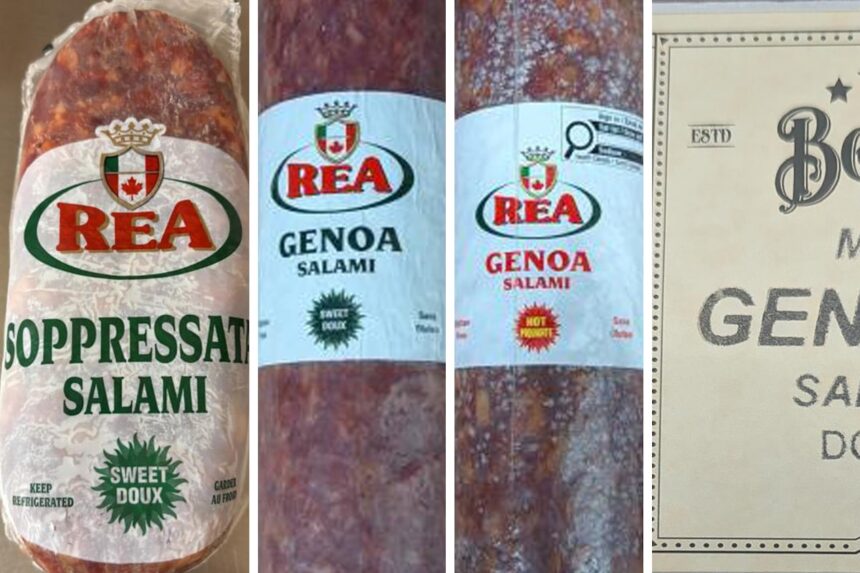In a concerning development for Canadian consumers, health authorities have expanded a nationwide recall of contaminated salami products to British Columbia and Saskatchewan after multiple reports of salmonella-related illnesses. The recall, initially focused on central Canada, now spans coast to coast as investigators trace the source of the outbreak.
The Canadian Food Inspection Agency confirmed yesterday that testing has identified matching salmonella strains in products distributed by three major meat processing facilities. At least 47 Canadians across five provinces have reported symptoms consistent with salmonella infection after consuming the affected products, with 12 requiring hospitalization.
“We’re dealing with a particularly virulent strain of salmonella that appears to survive the curing process,” said Dr. Amelia Richardson, chief food safety officer at Health Canada. “Consumers should check their refrigerators immediately and dispose of any recalled products, even if they’ve already consumed portions without becoming ill.”
The expanded recall includes all dry-cured salamis produced between March 15 and April 30 under the brands Charcuterie Select, Milano Fine Foods, and Artisanal Provisions. Products were primarily distributed through major grocery chains and specialty delicatessens throughout Canada.
Public health officials from CO24 News have learned that the contamination may have originated from imported spices used in the curing process. Laboratory analysis revealed contamination levels exceeding federal safety standards by up to seven times the allowable limit.
Industry experts note this recall highlights vulnerabilities in Canada’s food safety inspection system. “The complexity of modern food supply chains means contamination can spread rapidly across multiple products and regions,” explained Dr. Helena Wong, food safety researcher at the University of British Columbia. “Our inspection protocols need updating to address these emerging risks.”
The economic impact is already being felt across the business sector. Share prices for the parent company of one major processor fell 8% yesterday, while specialty grocers report customers avoiding entire deli sections despite most products being unaffected.
Symptoms of salmonella infection typically appear 12 to 72 hours after consumption and include fever, abdominal cramps, diarrhea, nausea, and vomiting. Health officials particularly warn that elderly individuals, young children, pregnant women, and those with compromised immune systems face greater risk of severe illness.
The Canadian Food Inspection Agency has established a dedicated hotline for consumers to verify whether specific products are included in the recall. Additionally, anyone experiencing symptoms after consuming salami products should seek medical attention and report their case to local health authorities.
As food safety investigators continue tracing the contamination pathway, a broader question emerges for Canadian consumers: in an era of increasingly complex food supply chains, how can we balance our appetite for specialty food products with the growing challenges of ensuring their safety?











